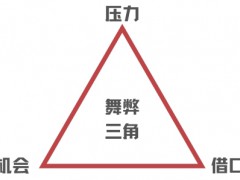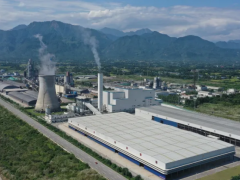据世界石油7月6日消息,沙特阿拉伯和阿拉伯联合酋长国之间的激烈斗争使欧佩克+陷入危机,并阻止了供应的增加,石油价格跃升至6年多来的最高水平。
西德克萨斯中质原油(WTI)上涨至每桶76.98美元,为2014年11月以来的最高水平,谈判破裂导致市场失去了一直期望的下个月的额外供应。
接下来发生的事情将决定这场对峙是否会升级为一场与去年价格战一样具有破坏性的冲突。
这关系到在通胀压力不断加大的情况下全球经济复苏的稳定,以及产油国联盟维持其对石油市场来之不易的控制权的能力。
随着美国假日出行高峰的到来,汽油价格已经超过每加仑3美元,这被视为驾车者的敏感门槛,对事态可能进一步恶化的担忧显而易见,白宫敦促各方达成妥协。
经过几天的紧张谈判,欧佩克及其盟国放弃了周一的会议。在如何衡量产量削减方面的分歧打乱了一项提高产量的初步协议,并迅速恶化为沙特阿拉伯和阿联酋之间罕见的私人和公开争吵。
两国上一次在石油政策上发生冲突是在2020年12月,当时阿联酋提出了退出欧佩克的想法。那次争端最终以休战告终,但这次谈判的破裂如此严重,以至于该组织甚至无法就下次会议的日期达成一致。
谈判破裂的直接后果是,预计8月份的增产将不会实现,导致市场在全球经济从疫情中复苏之际出现原油短缺。周二,沙特阿美上调了8月份其阿拉伯轻质原油和其他品级原油的价格。
瑞银集团大宗商品分析师Giovanni Staunovo表示:“由于石油市场已经处于赤字状态,供应增长滞后于需求增长,欧佩克+现有产量限制的延续可能会推高油价。”
从中期来看,这种分裂可能会产生相反的效果,随着各国竞相争夺地位并开始增加产量,油价可能会更低。Staunovo称,但这种可能性很低。
伊拉克石油部长贾巴尔表示:“我们不想打价格战。我们不希望油价上涨至目前的水平。”
主要消费者也在关注欧佩克的谈判失败。几小时内,美国总统拜登敦促该组织采取行动。沙特阿美对美国客户的提价幅度远远小于对亚洲买家的提价幅度。
一位发言人表示,白宫正在“密切关注欧佩克+谈判及其对全球经济复苏的影响。政府官员已与相关国家首脑接触,敦促达成妥协方案,使拟议的增产计划得以推进。”
在这方面,美国可能会在欧佩克内部找到盟友。
欧佩克+已经恢复了去年疫情初期暂停的部分原油供应。这个由23个国家组成的联盟决定,从5月到7月,每天向市场增加约200万桶原油。周一摆在部长们面前的问题是,未来几个月是否要继续这样做。
欧佩克自己的数据显示,随着燃料消费的持续复苏,一度膨胀的石油库存已回落至平均水平。欧佩克秘书长穆罕默德·巴尔金多上周表示,今年下半年的日需求量将比上半年高出500万桶。
放开增产的主要支持者一直是俄罗斯。该国企业渴望提高产量,而在9月份的议会选举之前,国内汽油价格不断上涨是一个日益严峻的问题。
俄罗斯未能实现其期望的增产,这对俄罗斯副总理亚历山大·诺瓦克来说是一次罕见的挫折。诺瓦克是欧佩克+联盟的缔造者之一。周一的会议被取消后,他没有公开发表评论,但是他有充分的动机继续在幕后努力寻找解决方案。
伊拉克石油部长表示,他希望在未来10天内“见证”另一个欧佩克+会议的日期,应该能够达成一个让所有人都满意的协议。与此同时,他预计成员国将继续遵守现有的生产配额,并表示对价格的影响将是暂时的。
贾巴尔在电话采访中表示:“市场预计未来几个月油价会小幅上涨,协议的延期导致了油价的小幅上涨。如果欧佩克同意增加出口,价格可能会下降。”
裘寅 编译自 世界石油
原文如下:
Oil prices hit 2014 records as OPEC plunges deeper into crisis
Oil jumped to the highest in more than six years after a bitter fight between Saudi Arabia and the United Arab Emirates plunged OPEC+ into crisis and blocked a supply increase.
West Texas Intermediate crude advanced to $76.98 a barrel, the highest since November 2014, as the breakdown in talks left the market without the extra supplies for next month it had been counting on.
What happens next will determine whether the standoff could escalate into a conflict as destructive as last year’s price war.
At stake is the stability of the global economic recovery amid growing inflationary pressures, and the ability of the producers’ alliance to retain its hard-won control over the oil market.
With the U.S. holiday driving season underway and gasoline prices already above $3 a gallon -- seen as a sensitive threshold for motorists -- the fear that events could spiral further was evident, with the White House urging a compromise.
After several days of tense talks, the Organization of Petroleum Exporting Countries and its allies abandoned their Monday meeting. A disagreement over how to measure production cuts upended a tentative deal to boost output and swiftly deteriorated into an unusually personal and public spat between Saudi Arabia and the UAE.
The last time those two countries clashed over oil policy, in December 2020, the UAE floated the idea of leaving the cartel. That dispute ended in a truce, but the breakdown in negotiations this time around was so severe that the group couldn’t even agree on a date for its next meeting.
The immediate consequence of the collapse in talks is that the output hike expected for August won’t take place, leaving the market short of barrels just as the global economy recovers from the Covid-19 pandemic. On Tuesday, state-run Saudi Aramco increased the prices of its Arab Light crude and other grades in August.
“With the oil market already in deficit and supply growth lagging oil demand growth,” the continuation of existing OPEC+ production limits is likely to send prices higher, said Giovanni Staunovo, a commodities analyst at UBS Group AG.
Over the medium term, the split could potentially have the opposite effect, bringing lower prices as countries jockey for position and start pumping more. The probability of this is low, Staunovo said.
“We do not want a price war,” said Iraq’s Oil Minister Ihsan Abdul Jabbar. “And we do not want oil prices to rise to more than the current levels.”
Major consumers were also paying attention to the cartel’s failure. Within hours, the administration of U.S President Joe Biden urged the group to get its act together. Saudi Aramco’s price increases for U.S. customers were much smaller than those to buyers in Asia.
The White House is “closely monitoring the OPEC+ negotiations and their impact on the global economic recovery,” a spokesperson said. “Administration officials have been engaged with relevant capitals to urge a compromise solution that will allow proposed production increases to move forward.”
In this regard, the Americans may find allies within the cartel.
OPEC+ has already been reviving some of the crude supplies it halted last year in the initial stages of the pandemic. The 23-nation coalition decided to add about 2 million barrels a day to the market from May to July, and the question before ministers on Monday was whether to keep going in the coming months.
The cartel’s own data show that once-bloated oil inventories are back down to average levels as the recovery in fuel consumption continues. Demand in the second half will be 5 million barrels a day higher than in the first six months of the year, OPEC Secretary-General Mohammad Barkindo said last week.
The main proponent for opening the taps has been Russia. Its companies are keen to boost output, while rising domestic gasoline prices are an issue of growing importance before the parliamentary elections in September.
Moscow’s failure to secure its desired production increase was a rare setback for Deputy Prime Minister Alexander Novak, one of the architects of the OPEC+ alliance. He made no public comment after the cancellation of Monday’s meeting, but has every incentive to continue working behind the scenes to find a resolution.
Iraq’s oil minister said he hopes to “witness a date” within the next 10 days for another OPEC+ meeting, which should be able to reach a deal that satisfies everyone. In the meantime, he expects members will continue to honor their existing production quotas, and said the impact on prices will be temporary.
“The market was expecting a small addition in the coming months, the delay in the agreement led to this slight rise in oil prices,” Jabbar said in a phone interview. “Prices may come down if OPEC agrees to raise exports.”
免责声明:本网转载自其它媒体的文章,目的在于弘扬石化精神,传递更多石化信息,并不代表本网赞同其观点和对其真实性负责,在此我们谨向原作者和原媒体致以敬意。如果您认为本站文章侵犯了您的版权,请与我们联系,我们将第一时间删除。







